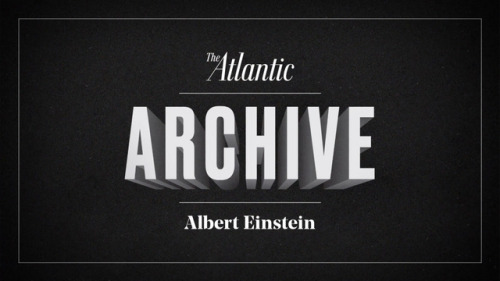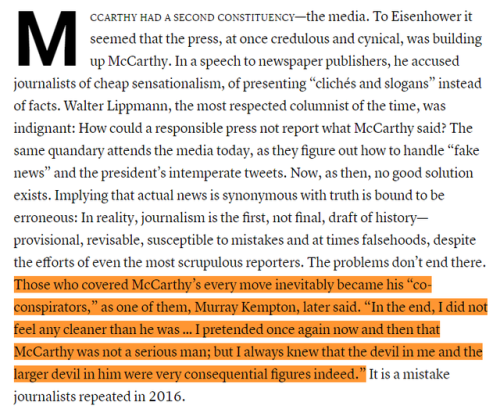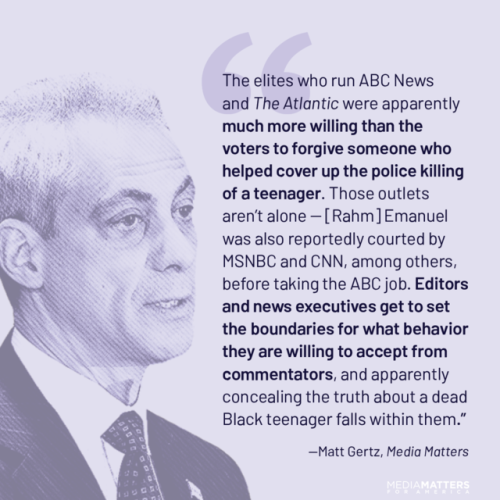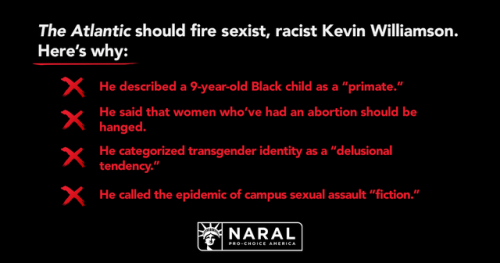#the atlantic

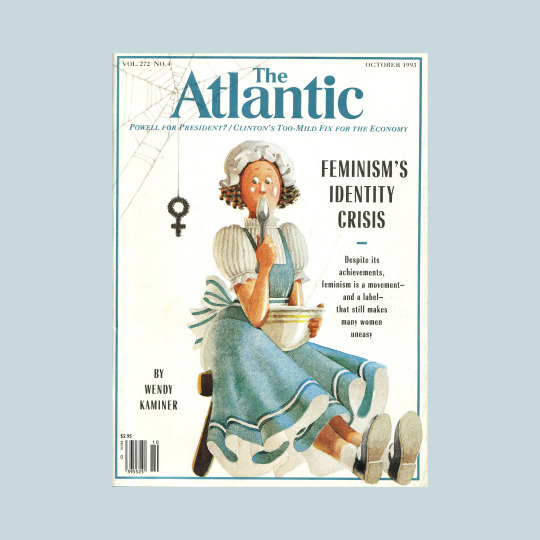

Ever since Harriet Beecher Stowe helped found the magazine in the spring of 1857, women have been integral to The Atlantic.
During the Cold War, a concerned Eleanor Roosevelt watched Russian influence spread to the world’s “uncommitted nations” and called for a re-dedication to the ‘American Dream’ in the April 1961 issue. In our August 1932 issue, Hellen Keller wrote a piece titled “Put Your Husband in the Kitchen,” in the form of humorous Depression-era business advice-giving.
The covers featured here include one from August 1968 with songwriter and activist Joan Baez, in which she shares excerpts from her journal; Wendy Kaminer on “Feminism’s Identity Crisis” leading the October 1993 issue; and the July/August 2013’s cover story by Anne-Marie Slaughter, “Why Women Still Can’t Have It All,” arguing that true equality entails sweeping policy changes. Do you have a favorite female Atlantic writer or artist? Comment below.

From David Wise’s cover story, The President and the Press in the April 1973 issue:
The First Amendment clearly protects the printed press. But the Founding Fathers, after all, did not foresee the advent of television, and the degree to which broadcasting is protected by the First Amendment has been subject to shifting interpretation. Technology has outpaced the Constitution, and the result is a major paradox: television news, which has the greatest impact on the public, is the most vulnerable and the least protected news medium.
Michael K. WilliamsTypecast
Question Your Answers
(The Atlantic/HBO, 5/9/18)
+Alt
If we compared gun violence in U.S. cities to the deadliest nations in the world, via Citylab:
- If it were a country, New Orleans (with a rate 62.1 gun murders per 100,000 people) would rank second in the world.
- Detroit's gun homicide rate (35.9) is just a bit less than El Salvador (39.9).
- Baltimore’s rate (29.7) is not too far off that of Guatemala (34.8).
- Gun murder in Newark (25.4) and Miami (23.7) is comparable to Colombia (27.1).
- Washington D.C. (19) has a higher rate of gun homicide than Brazil (18.1).
- Atlanta’s rate (17.2) is about the same as South Africa (17).
- Cleveland (17.4) has a higher rate than the Dominican Republic (16.3).
- Gun murder in Buffalo (16.5) is similar to Panama (16.2).
- Houston’s rate (12.9) is slightly higher than Ecuador’s (12.7).
- Gun homicide in Chicago (11.6) is similar to Guyana (11.5).
- Phoenix’s rate (10.6) is slightly higher than Mexico (10).
- Los Angeles (9.2) is comparable to the Philippines (8.9).
- Boston rate (6.2) is higher than Nicaragua (5.9).
- New York, where gun murders have declined to just four per 100,000, is still higher than Argentina (3).
- Even the cities with the lowest homicide rates by American standards, like San Jose and Austin, compare to Albania and Cambodia respectively.
Post link
Source: Fassler, The Atlantic - 2013
- Red Harvest-Hammott (chosen by M. Abbott)
- The Long Goodbye - Chandler (C. Ardai)
- Moby-Dick - Melville (M. Atwood, D. GIlbert)
- A Bend in the River - Naipaul (P. Blauner)
- Parker Novels - Westlake (L. Block)
- A Vision of the World - Cheever (E. Canin)
- The Short Happy Life of Francis Macomber - Hemingway (R. Carlson)
- One Lonely Night - M. Spillane (M. A. Collins)
- Ulysses - Joyce (L. Davis)
- Portrait of the Artist as a Young Man - Joyce (M. Simpson)
- The Trial - Kafka (J. Franzen)
- The Amazing Adventures of Kavalier & Clay - Chabon (R. Gay)
- Charlotte’s Web - White (A. S. Greer)
- The Magic Mountain - Mann (P. Hardy)
- The Last Good Kiss - Crumley (J. Starr)
- The Wrong Case - Crumley (L. Lippmann)
- Waiting for the Barbarians - Coetzee (A. Marra)
- Blood-Burning Moon, from Cane - Toomer (A. Mathis)
- The Heart Is a Lonely Hunter - McCullers (A. Mathis)
- True Confessions - Dunne (S. J. Rozan)
- Lolita - Nabokov (J. Santofler)
- I Remember - Brainard (J. Torres)
This week, at a panel in discussion with Goldie Hawn, former Disney CEO Michael Eisner said that it’s difficult to find women who are both beautiful and funny. Obviously his intention was to say a nice thing about Goldie Hawn, who is indeed beautiful and funny and excellent at her job. So what’s the problem, right?
Here’s my issue with the remark. Comedians have one job: to entertain. Successful comedians are lauded for their ability to consistently illicit laughter from their audience, be it in a small club or on a sitcom watched by millions. Male comedians are considered “good” if they live up to this expectation of consistency. Other factors - including their appearance - rarely play into their quantified “value” to the industry.
Female comics are constantly judged not only for their material, but for their appearance. We saw it when Amy Schumer dedicated an entire episode of her hugely successful sketch show to respond to viewers who were hell-bent on booting her off of TV for daring, by their standards, to be “unfuckable.” We saw it when Mindy Kaling was told to give up on being a leading lady and instead go for those “best friend” roles. And many of my friends see it when they, after being announced by the host as the “token girl,” go up on stage and are heckled relentlessly by an audience of horned-up assholes who demand to see her tits for her entire 15 minute set. We are comedians. It is not our job to be beautiful, and yet it is demanded from us every time we show up for work.
Let’s ignore, for a second, that beauty is wholly subjective and by that definition, all women are beautiful. Plenty of women are funny AND fit the traditional Hollywood definition of beautiful, but the inhospitable nature of the industry drives many of them away. Funny women are CONSTANTLY judged based on their appearance. Our career doesn’t insulate us from our culture of misogyny - in fact if anything people feel more okay with making comments about female comics because “they’re comedians” who “shouldn’t take themselves too seriously."
If a beautiful, funny comic DOES make it to the top, she’ll probably find that writers are offering her up flaccid, uninspired roles that focus on her looks alone. Name a successful, beautiful female comedian and I guarantee you they are in that position because of the roles they’ve written for themselves. Great, you may think. She’s sidestepped the big bad Hollywood gatekeepers and made a career for herself. I totally agree with you, and I celebrate these powerful, talented women for all of their achievements - but remember, each and every one of those shows has passed through the hands of countless mostly male executives at studios, broadcasters, and production companies, and in order for that show to get made, ALL of them had to say yes. How many times have we missed out on something truly wonderful from a beautiful female comedian simply because some boring asshat at Boring Asshat Productions passed on it?
So Michael Eisner, just so we’re clear - there is no shortage of beautiful, funny women. The shortage, my friend, is on your end. I assure you that If You Produce It, They Will Come. If you start doing that, I can also assure you that you’ll find you can remove quantified beauty from the equation entirely and still make a killer comedy that your audiences will die to see.
A year into this opinion video series and we’ve already refreshed the title sequence and art direction for it.
I finally got to animate a poem and it happens to be the best poem (as well as the most misinterpreted one): Robert Frost’s “The Road Not Taken”:
https://www.theatlantic.com/video/index/555959/robert-frost-road-not-taken/
Post link
Fascinated by this piece about Joseph McCarthy, and this bit about his Trump-like relationship with journalists
Post link
Adjective
[ ep-i-kyoo-ree-uhn, -kyoor-ee- ]
1. fond of or adapted to luxury or indulgence in sensual pleasures; having luxurious tastes or habits, especially in eating and drinking.
Origin:
Epicurean “fond of or adapted to luxury or indulgence in sensual pleasures” derives via Middle English from Latin Epicūrēus “of Epicurus.” Epicurus (in the original Ancient Greek, Epíkouros) was a philosopher of Athenian origin who flourished in the late 4th and early 3rd centuries BC, and his school of thought, Epicureanism, had as its foundation the belief that pleasure was most important. The name Epicurus comes from the Ancient Greek adjective epíkouros “assisting,” which also functions as a noun meaning “ally, helper.” Epicurean was first recorded in English in the late 1300s.
“Sometimes I have thought it would be an excellent rule to live each day as if we should die tomorrow …. with a gentleness, a vigor, and a keenness of appreciation which are often lost when time stretches before us in the constant panorama of more days and months and years to come. There are those, of course, who would adopt the epicurean motto of ‘Eat, drink, and be merry,’ but most people would be chastened by the certainty of impending death.”
- HELEN KELLER, “THREE DAYS TO SEE,” THE ATLANTIC, JANUARY 1933
In 2014, Rahm Emanuel, then mayor of Chicago, engaged in a year-long cover-up that followed the fatal police shooting of 17-year-old Laquan McDonald in 2014. Following the scandal and the public’s outrage, Emanuel passed on seeking reelection. But he landed on his feet, lining up gigs as a commentator for ABC News and The Atlantic.
The headline for Emanuel’s first essay in The Atlantic, “It’s time to hold American elites accountable for their abuses,” is ironic considering that the scandal-plagued former mayor was hired by two of the nation’s most prestigious media outlets, and that the journalism industry is often unwilling to hold its own members accountable.
Post link
The Atlantic’s new columnist, Kevin Williamson, isn’t merely “controversial.” He has a history of making misogynistic, racist and outrageous claims on a number of issues. This man should not be given a national platform to normalize his views. He has to go!Take action now ➡️ https://bit.ly/2GoGQC4
Post link



